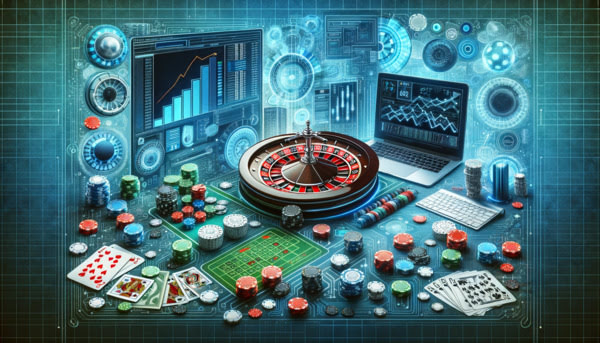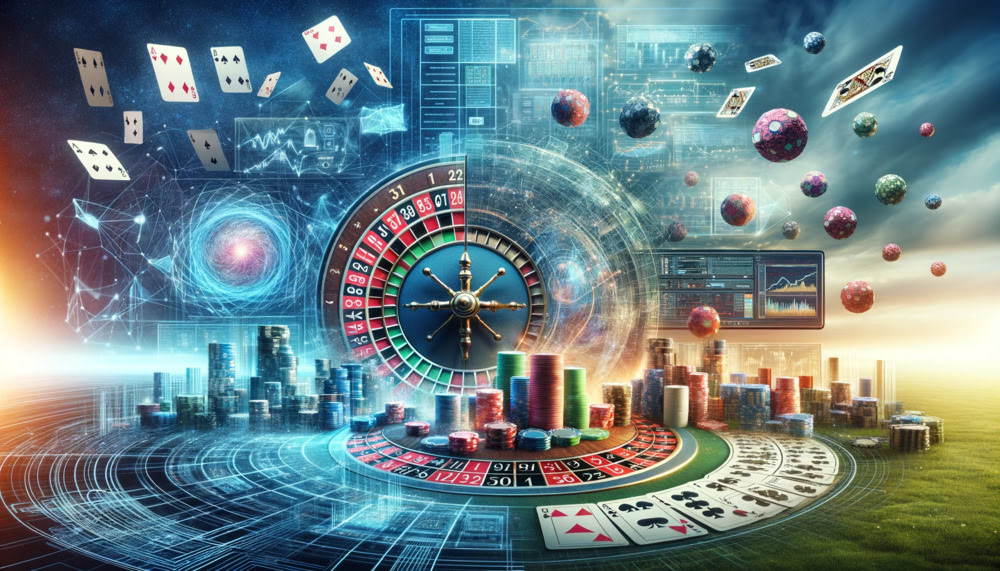
Algorithm-Based Betting: How Computers Are Changing Gambling Strategies
In the ever-evolving world of gambling, the advent of computer technology has revolutionized strategies and approaches. Algorithm-based betting, a concept increasingly embraced by modern platforms like 7melons casino, represents a significant shift from traditional gambling methods. This article delves into how computers and algorithms are reshaping the landscape of betting, offering insights into their growing influence in the gambling industry.
Understanding Algorithms in Betting
At the core of algorithm-based betting lies the use of sophisticated computer programs to analyze vast datasets. These algorithms process historical data, player statistics, and other relevant information to make calculated predictions and decisions. This data-driven approach contrasts sharply with traditional betting strategies, which often rely more on intuition and less on empirical evidence.
The Impact of Computers on Traditional Betting
The integration of computers in betting has dramatically altered traditional gambling strategies. Initially, bettors relied on their knowledge and gut feelings to make wagers. Now, with the aid of algorithms, they can leverage data analytics and probabilistic modeling to inform their bets. This shift has not only increased the precision of betting predictions but also democratized access to expert-level analysis.
Moreover, the speed and efficiency of computerized betting systems allow for real-time adjustments. In sports betting, for instance, algorithms can analyze live data to suggest in-game betting strategies, something that was unimaginable in the pre-digital era. This ability to rapidly process information and adapt strategies accordingly gives computer-assisted bettors a distinct advantage over those using traditional methods.
Types of Algorithm-Based Betting Systems
Algorithm-based betting systems come in various forms. Statistical model-based systems are the most common, utilizing historical data to predict future outcomes. These models are particularly prevalent in sports betting, where past performance data of teams and players can be statistically analyzed for future game predictions.
Another emerging type is machine learning and AI-based systems. These systems go beyond static statistical analysis, learning and evolving with new data. In financial betting, automated trading systems use algorithms to make high-frequency trades based on market data analysis, a concept that is increasingly being adapted in sports and casino betting as well.

Advantages of Using Algorithms in Betting
The primary advantage of using algorithms in betting is the enhanced ability to make informed decisions. By analyzing extensive data sets, algorithms can identify patterns and trends that are not immediately apparent to the human eye. This can lead to better odds of success, especially in areas like sports betting where outcomes can be influenced by a myriad of factors.
Challenges and Limitations
Despite their advantages, algorithm-based betting systems are not without challenges. Ethical and legal considerations arise, particularly around the fairness and transparency of using such systems. Additionally, an overreliance on technology can lead to complacency, ignoring the unpredictable nature of gambling. Algorithms, while powerful, cannot account for every unforeseeable variable in sports or financial betting.
The Future of Gambling: Algorithmic Innovations and Trends
Looking ahead, the future of gambling is intrinsically linked to technological advancements. The integration of blockchain technology promises more secure and transparent betting processes, while advancements in AI and machine learning suggest even more sophisticated analytical tools. We might soon see personalized betting algorithms that cater to individual betting styles and preferences, enhancing the overall user experience.
Furthermore, as the Internet of Things (IoT) and Big Data continue to evolve, the amount of data available for analysis will exponentially grow. This will likely lead to more nuanced and accurate predictive models, potentially revolutionizing how odds are calculated and bets are placed. The intersection of virtual reality (VR) and gambling could also lead to more immersive and interactive betting experiences.
In conclusion, the integration of algorithms and computer technology in betting is not just a fleeting trend but a fundamental shift in the gambling landscape. While challenges remain, the potential for more accurate, efficient, and engaging betting experiences is immense. As platforms like 7melons online casino and others continue to adopt these technologies, the future of gambling looks more exciting than ever.





